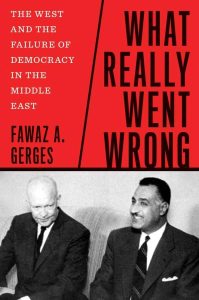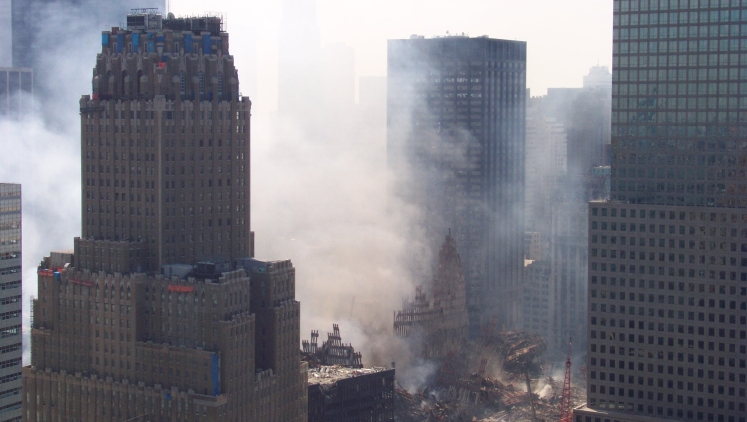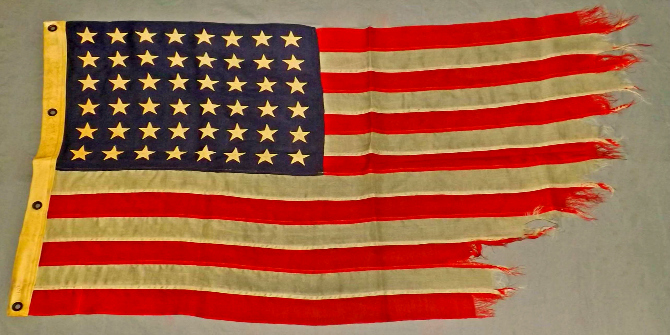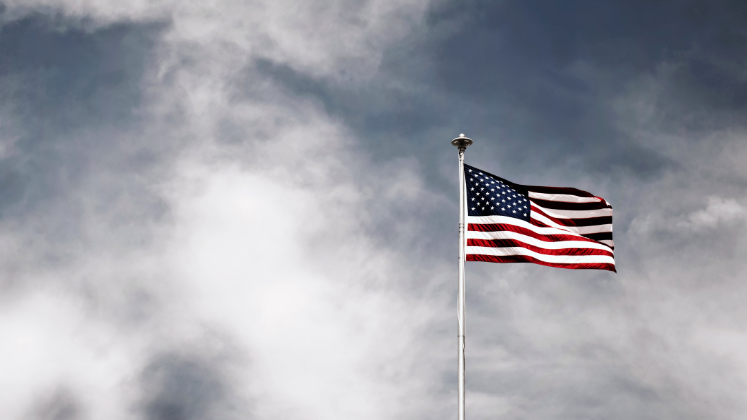In this edited excerpt from the introduction to What Really Went Wrong, Fawaz A Gerges argues that US interventionism during the Cold War – especially in Iran and Egypt – steered the Middle East away from democracy towards authoritarianism, shaping the region’s political and economic landscape for decades to come.
Watch a YouTube video with Fawaz Gerges about the book, Why is the Middle East at war?: US Intervention explained.
 At the end of the colonial era after World War Two, the Middle East was on the cusp of a new awakening. Imperial Britain, France, and Italy were discredited and exhausted. Hope filled the air in newly independent countries around the world. Like people across the decolonised Global South, Middle Easterners had great expectations and the material and spiritual energy needed to seize their destiny and modernise their societies. Few could have imagined events unfolding as disastrously as they did. Yet by the late 1950s, the Middle East had descended into geostrategic rivalries, authoritarianism and civil strife.
At the end of the colonial era after World War Two, the Middle East was on the cusp of a new awakening. Imperial Britain, France, and Italy were discredited and exhausted. Hope filled the air in newly independent countries around the world. Like people across the decolonised Global South, Middle Easterners had great expectations and the material and spiritual energy needed to seize their destiny and modernise their societies. Few could have imagined events unfolding as disastrously as they did. Yet by the late 1950s, the Middle East had descended into geostrategic rivalries, authoritarianism and civil strife.
What clouded this promising horizon? Digging deep into the historical record, What Really Went Wrong critically examines flashpoints like the US Central Intelligence Agency (CIA)’s ousting of Iranian Prime Minister Mohammad Mosaddeq in August 1953 and the US confrontation with Egyptian President Gamal Abdel Nasser in the mid-1950s. My argument is that such flashpoints sowed the seeds of subsequent discontent, hubris and conflict. I zero in on these historical ruptures to reconstruct a radically different story of what went wrong in the region, thus correcting the dominant narrative. My goal is to engender a debate about the past that can make us see the present differently.
What Really Went Wrong critically examines flashpoints like the US Central Intelligence Agency (CIA)’s ousting of Iranian Prime Minister Mohammad Mosaddeq in August 1953 and the US confrontation with Egyptian President Gamal Abdel Nasser in the mid-1950s.
I argue that the defeat and marginalisation of secular-leaning nationalist visions in Iran and Egypt in the 1950s and ’60s allowed for Sunni and Shia pan-Islamism to gain momentum throughout the Middle East and beyond. Because of bad decisions made in the White House, power passed from popular leaders and sincere patriots to unpopular and subservient rulers, and the sympathy of the people was hijacked by Islamist leaders and movements. The consequences of events in both Iran and Egypt still haunt the Middle East today.
The dawn of US interventionism
The book’s core concern is with the legacy and impact of US foreign policy during the early years of the Cold War on political and economic development in the Middle East. It focuses on two major pieces of the puzzle: momentous events in Iran and Egypt in which America played a decisive role. Examining these, it shows how Anglo-American interventions in the internal affairs of the Middle East from the early 1950s (till the present) stunted political development and social change there and led the region down the wrong path to authoritarianism and militarism. The Middle East was reimagined as a Cold War chessboard, which left a legacy marked by dependencies, weak political institutions, low levels of civil and human rights protection, lopsided economic growth and political systems prone to authoritarianism. This is the antithesis of often-stated Western values rooted in democracy, human rights and the rule of law.
An informal empire emerges
Developing countries emerged into independence from a history that left its mark on their future. It was difficult enough for countries emerging from colonialism to build sound institutions, gain public trust and extend state authority, and America’s imperial ambitions and actions during and after the Cold War made this all the more difficult, if not impossible. With the foundations of imperialism far from completely dismantled, old structures persisted under new names. In some cases, it was more than just structures that perpetuated dependence. It was the very leaders and their descendants who were co-opted into a neocolonial reality. Anyone challenging that order was swiftly marked as an enemy of democracy and free markets.
With the foundations of imperialism far from completely dismantled, old structures persisted under new names.
Within living memory, the peoples of the Middle East viewed the US with awe and optimism. Unlike its European allies, America had never ruled over Muslim lands and appeared to have no imperial ambitions. Instead, Americans had built hospitals and major universities in the region. Washington could have built relations on the basis of mutual interests and respect, not dependency and domination. When the US signed an agreement with Saudi Arabia to begin oil exploration in 1933, the people of the region saw it as an opportunity to decrease their dependence on the “imperial colossus,” Great Britain. But from the Middle East to Africa and Asia, newly decolonised countries discovered that formal independence did not translate into full sovereignty. A creeping form of colonialism kept tying these countries to their old European masters and the new American power.
As the historian Rashid Khalidi noted, the US was following in the footprints of European colonialism. In his book Imperialism and the Developing World, Atul Kohli compares British imperialism during 19th century with America’s informal empire in the 20th. It might not have been formally called colonialism, but the effects were the same: Washington – often backed by London – pursued its interests at the cost of the right to self-determination and sovereignty of other peoples and countries.
Cold War divisions, US opportunism
Setting up defence pacts in the Middle East in the early 1950s to encircle Russia’s southern flank, Eisenhower’s Cold Warriors pressured friends and foes to join in America’s network of alliances against Soviet communism. Newly decolonised states like Iraq, Egypt, Iran (which was not formally colonised), and Pakistan had to choose between jumping on Uncle Sam’s informal empire bandwagon or being trampled under its wheels.
The Truman and Eisenhower administrations laid the foundation of an imperial foreign policy which was hardened by the Nixon and Reagan presidencies. The US provided arms, aid and security protection to the shah and to Israeli and Saudi leaders during the Cold War. This led to economic growth, but as Kohli notes, it was not evenly distributed throughout the region. After the end of the Cold War in 1989, US imperial foreign policy persisted with George W. Bush, who waged a global war on terror that saw the US invade and occupy Afghanistan and Iraq.
The US foreign policy establishment saw the world through imperial lenses that divided everything into binary terms – black and white, good and evil. In their eyes, the existential struggle against Soviet communism justified violence, collective punishment and all other means to achieve their ideological ends. In June 1961, then-CIA director Allen Dulles, declared that the destruction of the “system of colonialism” was the first step to defeat the “Free World.”
While establishing this foreign policy strategy, the US […] was also building the postwar international financial and trading and security institutions that allowed its competitive corporations to outperform others.
While establishing this foreign policy strategy, the US – as the dominant capitalistic superpower – was also building the postwar international financial and trading and security institutions that allowed its competitive corporations to outperform others. This global system of open, imperial economies disproportionately steered the fruits of the world’s economic growth to the citizens of the West, particularly Americans. Kohli argues that the US sought to tame sovereign and effective state power in the newly decolonised world. Regime change, covert and overt military interventions, sanctions to create open economies and acquiescent governments were all among the weapons of the informal Cold War imperialism, all wielded with the soundtrack of piercing alarm about the spectre of a Soviet communist threat.
The “Free World” fallacy
The project was not without opposition, however. Nationalist forces resisted the new imperialism, and US leaders escalated their military efforts to defeat indigenous opposition. With its thinly veiled imperialism, insubstantial justification for using military force and vague claims about impending threats to the “homeland”, the US began to lose credibility. Washington’s shortsighted views ultimately backfired, undermining security globally and forestalling good governance in the Middle East and beyond.
This imperial vision had ramifications for the West’s self-appointed role as the leader of the free world and defender of human rights, going well beyond reputation.
This imperial vision had ramifications for the West’s self-appointed role as the leader of the free world and defender of human rights, going well beyond reputation. Mistrust in the international liberal order has weakened international institutions and eroded deference to norms such as respect for human rights. What unfolds in Guantánamo Bay or Gaza, Palestine does more than hurt the individuals unjustly subject to illegal torture or civilians slaughtered by the thousands; it raises the global public’s tolerance for such abhorrent acts by having them unfold in the heart of the democratic West.
Understanding what happened in the Middle East
The book does not argue that democracy was bound to flourish in the Middle East if the US had not subverted the nascent democratic and anticolonial movements. Rather, America’s military intervention, its backing of authoritarian, reactionary regimes and neglect of local concerns, and its imperial ambitions created conditions that undermined the lengthy, turbulent processes that constitutionalism, inclusive economic progress, and democratisation require. The political scientist Lisa Anderson notes that “it is usually decades, if not centuries, of slow, subtle, and often violent change” that create the conditions for meaningful state sovereignty.
Though the experiences of the Middle East are not wholly unique, some characteristics are specific to the region, such as its contiguity to Europe and its vast quantities of petroleum, strategic waterways and markets which have proved irresistible to Western powers. Western powers have thus persistently intervened in the internal affairs of Middle Eastern countries as they have not in other parts of the world. This “oil curse” has triggered a similar geostrategic curse in the Middle East, pitting external and local powers against each other in a struggle for competitive advantage and influence. As the book explores, this convergence of curses has had far-reaching and lasting political and economic consequences for Middle Eastern states.
The book eschews historical determinism and offers a robust reconstruction of the international relations of the Middle East as well as social and political developments in the region. It also encourages us to reimagine the present in light of revisiting the past. In so doing, we can begin to see lost opportunities and new possibilities for healing and reconciliation.
Note: This excerpt from the introduction to What Really Went Wrong: The West and the Failure of Democracy in the Middle East by Fawaz A Gerges is copyrighted to Yale University Press and the author, and is reproduced here with their permission.
This book extract gives the views of the author, not the position of the LSE Review of Books blog, or of the London School of Economics and Political Science.
Read an interview with Fawaz A Gerges, “What really went wrong in the Middle East” from March 2024 for LSE Research for the World.
Watch Fawaz A Gerges interviewed by Christiane Amanpour about the US’s role in the Israel-Gaza war from December 2023 and by Fareed Zakaria about the prospect of a regional war in the Middle East from January 2024, both on CNN.
Main image: Secretary Dean Acheson (right) confers with Prime Minister Mohammed Mossadegh of Iran (left) at the Walter Reed Army Medical Center in Washington D.C., 1951. Credit: The Harry S. Truman library.







